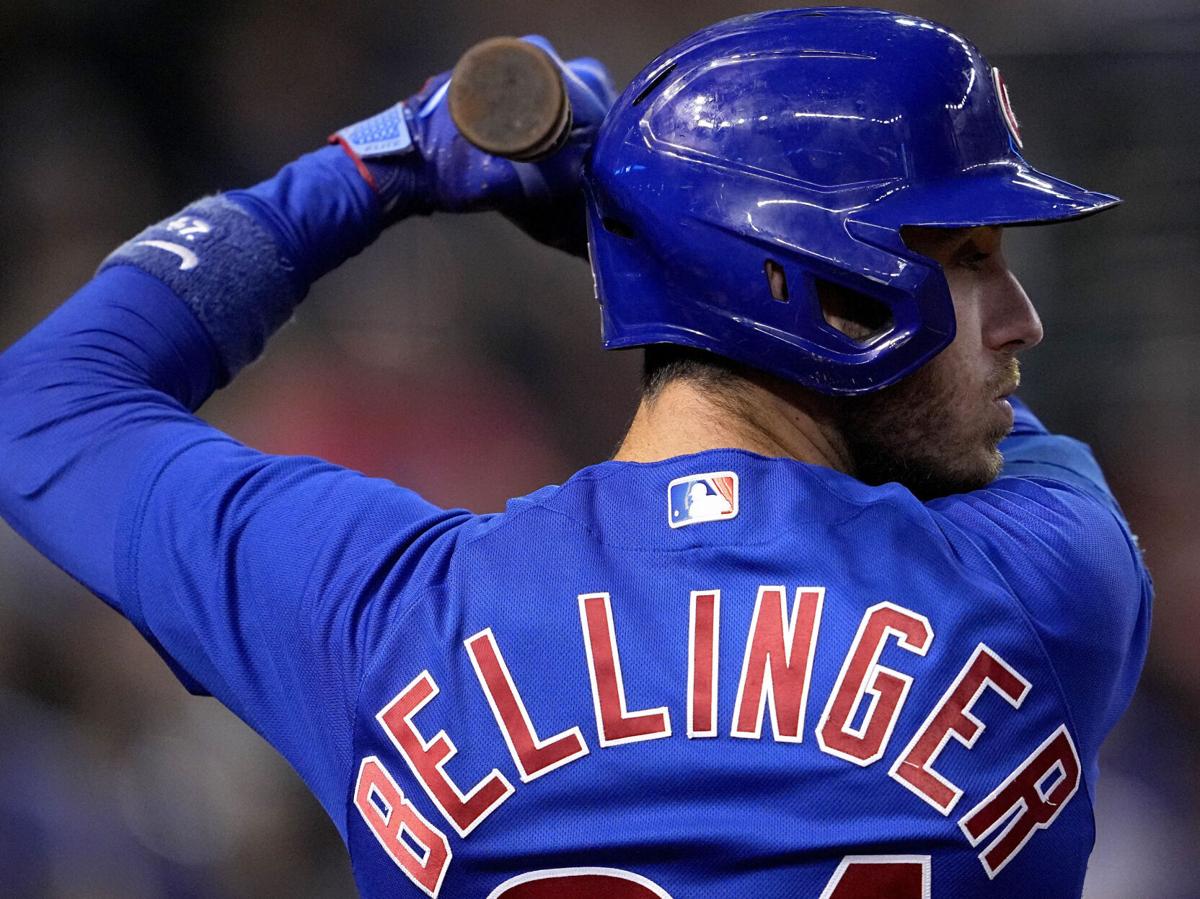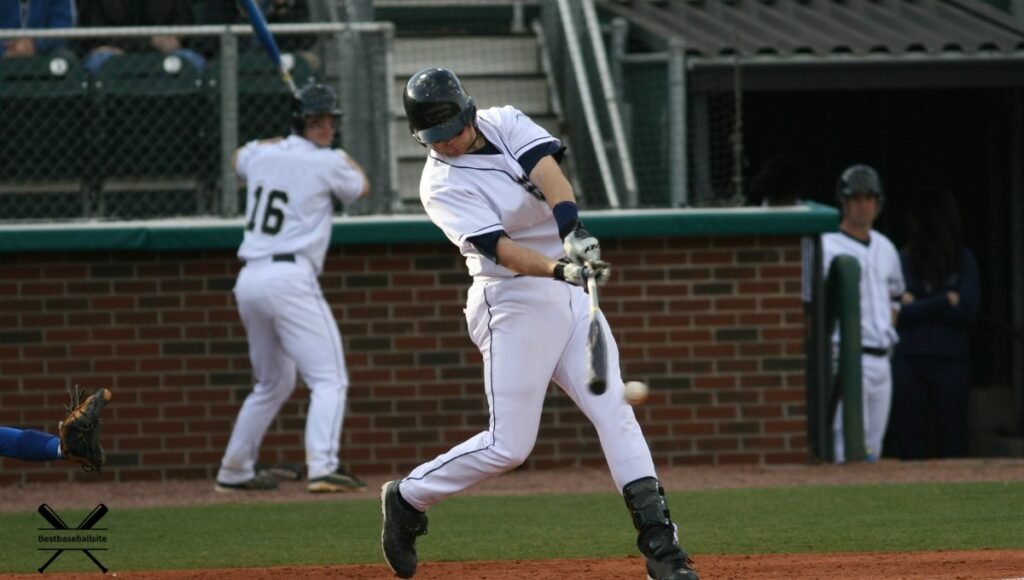Baseball games are typically delayed or cancelled in rain to prevent injuries and maintain fair play. A wet field can compromise player safety and the game’s integrity.
Baseball, America’s beloved pastime, has always had a close relationship with the weather. Players showcase their skills on the diamond, a gameplay environment highly susceptible to the elements. Rain, notably, poses a significant challenge; it can turn the infield into a slippery hazard and the ball becomes harder to grip, increasing the risk of injuries for the athletes whose split-second reactions depend on reliable playing surfaces.
Maintaining the integrity of the game is paramount; a rain-soaked field can affect the trajectory of pitches and hits, skewing the game’s outcomes. Therefore, game officials are quick to call for a delay or outright cancellation at the hint of inclement weather. With the fans’ experience and players’ careers at stake, baseball errs on the side of caution, respecting both the game’s tradition and its modern health and safety standards.
Play Ball, Not In The Rain
The thrills of baseball often stop when rain starts to pour. “Play ball!” is a cheer fans rarely hear in wet weather. Let’s explore why the rain puts a pause on America’s favorite pastime.
Safety Concerns On A Wet Field
Players’ safety is top priority in baseball. Rain makes fields slippery, a big risk for athletes. Wet surfaces can lead to sprains, or worse, broken bones. Quick moves become dangerous on slick bases and muddy outfields.
- Increased chance of accidents
- Difficult to navigate bases
- Riskier dives and slides
Impact On Pitch And Play Quality
Rain affects how the ball moves. Wet weather makes balls heavy and harder to throw. It changes the game a lot. Pitchers struggle, hitters have it tough, and fans see less of the action they love.
| Aspect of Play | Impact |
|---|---|
| Pitching | Less accurate, less speed |
| Hitting | Reduced power, unpredictable bounces |
| Fielding | Hard to grip, increased errors |
Historical Rain Delays Explained
Baseball, a sport beloved by many, is no stranger to weather’s whims. Rain delays are a time-honored tradition within the game. They protect players and fans alike from the risks of a slippery field. They ensure the integrity of the play. Let’s delve into the stories behind these weather-induced pauses.
Famous Rainouts In Baseball History
Baseball’s past is soaked with infamous rainouts. They have left fans waiting and games pending. These moments are etched in the history of the sport.
- 1976’s “Monsoon Game”: The New York Yankees and the Kansas City Royals faced a deluge. It ended with the Royals swimming in the outfield.
- 1997 Florida Marlins Delay: The World Series saw an intense rain delay. This happened before Edgar Renteria’s series-winning hit.
- 2008’s World Series Suspension: The Philadelphia Phillies and the Tampa Bay Rays witnessed a suspended game. A first in World Series history due to continuous rain.
Policy Evolution For Weather Interruptions
The rules surrounding rain delays have evolved. They ensure fair play and safety. Early baseball had no formal policy. This led to arbitrary cancellations. Over time, the league implemented a structured system.
| Year | Change |
|---|---|
| 1961 | Introduction of tarps for field protection. |
| 1971 | Rule 4.10(c) standardized rain delay policy. |
| 2000s | Delays ensure games reach official status, even if resumed later. |
Today’s policies operate with a clear understanding of safety and scheduling. The goal remains to play ball. But not at the risks that prevailed in the early days of the sport.
Slippery When Wet: Player Risks
Rain turns baseball diamonds into slip-and-slide hazards. Playing baseball in the rain is not safe. This section digs into why teams bench the bats when showers hit the field.
Injury Risks On Slick Surfaces
The diamond gets slippery. Players run fast. Injuries can happen.
- Torn ligaments – Sudden moves on wet bases cause bad falls.
- Sliding accidents – Stealing bases becomes a high-risk move.
- Pulled muscles – Cold, damp conditions strain players’ muscles.
Muddy infields increase injury chances. Outfielders chase fly balls on uncertain footing. Safety first means no rain games.
Decreased Player Performance
Drenched equipment affects grip and control.
| Equipment | Performance Impact |
|---|---|
| Bats | Hard to hold, swings miss or lack power. |
| Gloves | Wet leather misses catches, fielding falters. |
| Balls | Heavy and slick, leading to less control. |
Wet weather compromises play quality. Pitchers struggle with ball control. Hitters face unpredictable pitches. Fielders battle the ball and the field. The game’s integrity stays intact when it’s dry.

Credit: pressofatlanticcity.com
Rain Check: The Economic Impact
Imagine a baseball stadium, buzzing with excited fans, suddenly silenced by rainfall. Unlike some sports, baseball doesn’t mix well with rain. Water affects the field conditions, equipment, and player safety. But beyond the game, rainouts can hit hard economically. Let’s uncover the real cost when baseball games get postponed due to rain.
Cost Of Game Delays And Cancellations
Time is money, and in baseball, delays can be costly. Every rainout means rescheduling. This includes staffing changes, equipment reuse, and marketing efforts. Teams and venues must shoulder these burdens. Consider the following:
- Staff wages for additional hours
- Equipment wear and tear
Labor costs add up, matched by wear on gear. Not to mention the refund policies impacting revenue streams.
Fan Experience And Revenue Losses
Fans fuel baseball’s economy. Rainouts dampen their spirits and wallets. Here’s how:
| Aspect | Impact |
|---|---|
| Concessions | Loss in sales from food and merchandise |
| Tickets | Refunds or comps for future games |
| Experience | Lost excitement, potential decrease in future attendance |
Concession stands stay idle. Tickets might need refunds or future game swaps. Most of all, the fan experience suffers. This can lead to a downward spiral, potentially impacting future ticket sales and long-term revenue.
Every washed-out game signals lost money and fan enthusiasm. It’s a tough pitch to swing, with both immediate and ongoing impacts on the economics of baseball.
Equipment Damage Control
Baseball, America’s beloved pastime, is known for its sunny day allure. Rainy conditions pose a real threat to this sport, especially when it comes to equipment integrity. The relationship between baseball and water is a delicate dance – one wrong step, and the game is compromised. Let’s dig into why maintaining equipment in top shape is a no-go in the rain.
Protecting Gear From The Elements
When the skies open up, the top priority becomes shielding baseball equipment from water damage. Here’s why:
- Leather Gloves: Rain leads to soggy gloves, losing their shape and flexibility.
- Wooden Bats: Excessive moisture can warp wood, reducing the bat’s effectiveness.
- Baseballs: Once wet, they gain weight and become slick, posing safety risks.
Maintenance Challenges In Damp Conditions
Damp conditions bring a slew of maintenance headaches:
| Equipment Piece | Maintenance Issue |
|---|---|
| Baseball Field | Muddy fields can destroy grass and infield material. |
| Player Uniforms | Wet uniforms are prone to staining and require extra care. |
| Catcher’s Gear | Rust and mildew can accumulate quickly on metal and padding. |

Credit: www.manchestertimes.com
The Art Of The Game
Baseball, known as America’s pastime, combines skill, strategy, and precision. These elements create a unique experience for players and fans. The game demands perfect conditions to maintain its artistic integrity. Rain disrupts this harmony, leading to the question: why doesn’t baseball play in the rain?
Preserving The Integrity Of Baseball
Games under wet conditions can compromise the true essence of baseball. Safety for players becomes a major concern. Unpredictable ball behavior and slippery surfaces risk serious injuries. Besides, rain can alter the outcome of a carefully strategized game, making it essential to halt play to protect the sport’s integrity.
Skill Limitations In Wet Weather
A downpour affects players’ abilities in various ways. Here’s how:
- Pitchers struggle to grip the ball, leading to less control over pitches.
- Batters face challenges with wet bats and visibility issues.
- Fielders might slip or misjudge the ball’s trajectory.
These conditions necessitate postponing a game to ensure risks are minimized and players can showcase their peak abilities.
Field Conditions And Maintenance
Baseball, the classic American pastime, stops when rain starts. This is not just due to player safety, but also because of field conditions and maintenance. A wet field can affect the game’s integrity, playing conditions, and the longevity of the field itself. Let’s dive into why the game pauses at the first drop of rain.
Drainage Systems And Field Tarping
Proper field drainage is critical to a playable surface. Rain can lead to puddles, slippery spots, and soft ground, making play dangerous. To combat this, fields incorporate advanced drainage systems designed to quickly move water away from the surface, maintaining a playable field.
- Porous materials under the field surface allow for rapid water absorption and runoff.
- Pumped evacuation systems can remove standing water to protect the field integrity.
Field tarping acts as a shield, covering the infield to stop saturation. Crews roll out a large tarp at the first sign of rain, ensuring the most critical areas stay dry.
Long-term Damage To Playing Surfaces
Rain affects not just the game day but the future of the baseball field. Excess moisture wreaks havoc on a field’s structure.
- Grass damage from too much water leads to an uneven playing field.
- Infield mix, if not properly protected, can turn to mud, requiring extensive remediation.
- Base paths and pitching mounds can become hazardous and need repair or rebuilding.
A well-maintained field ensures the safety of players and provides optimal playing conditions. Teams invest heavily in maintaining these elite sports venues. Rain can set back this investment, severely affecting the field’s playability for future games.
Behind The Scenes: Game Delay Decisions
Welcome to the unseen action when baseball games face rain delays. Understanding these decisions is fascinating. Let’s explore the vital roles and technologies that influence whether a game will continue in wet conditions.
Role Of Umpires And Groundskeepers
Umpires have the final say in delaying a game due to rain. They consult with groundskeepers, experts in field conditions. Together, they focus on safety and gameplay quality. The team considers various factors:
- Player Safety: Slippery surfaces pose injury risks.
- Playing Field Integrity: Wet fields can deteriorate quickly.
- Game Fairness: Rain affects players’ ability to perform.
Technology In Weather Prediction
Technology plays a pivotal role in weather predictions. Modern tools help make informed decisions:
- Radar Systems: Detect rain patterns and intensity.
- Weather Apps: Provide real-time updates and forecasts.
- Communication Devices: Ensure quick decision-making.
So, what happens behind the scenes during a delay? Umpires and groundskeepers analyze the field and check weather reports. They use the latest technology to predict if and when to resume play. The goal is always to maintain a balance between player safety and game integrity. Delay decisions are never taken lightly and involve a complex process that considers the well-being of players, fans, and the game’s essence.
The Unseen Players: Grounds Crew Heroes
The Unseen Players: Grounds Crew Heroes often go unnoticed in the grand spectacle of baseball. Yet, they play a crucial role in keeping the game going. Their swift actions determine whether a game can survive a downpour or if it must succumb to the elements. Let’s unveil the efforts of these unsung champions as they prepare for and respond to baseball’s rainy days.
Prepping For Inclement Weather
Long before the rain arrives, grounds crews lay the groundwork for protection. They monitor weather forecasts with precision, ensuring they’re always one step ahead.
- Assess forecast hours before game time
- Secure necessary equipment
- Prepare the field’s drainage system
Their thorough preparation includes covering the infield with a tarp, the first line of defense against rain.
Rapid Response To Sudden Rainfall
When rain hits unexpectedly, the grounds crew leaps into action. Their speed and efficiency are paramount to minimize delays.
- Rush to roll out the tarp
- Work in sync to cover the infield quickly
- Pump standing water and repair the field post-rain
They make rapid yet meticulous maneuvers to shield the diamond, keeping the field playable and safe for when the skies clear.
Alternatives And Innovations
Baseball games come to a halt in the rain to keep players safe and maintain field conditions. Alternatives and innovations now allow the game to thrive despite wet weather. Let’s explore how.
Indoor Stadiums And Retractable Roofs
Indoor stadiums offer complete protection from rain, ensuring non-stop baseball action. Retractable roofs blend outdoor play with weatherproofing. They open for sunny days and close during rain. The main advantages include:
- No game cancellations due to weather
- Year-round comfortable environment for fans and players
- Energy savings by utilizing natural light when possible
Advancements In Weather-resistant Materials
New materials are changing the game for baseball. Weather-resistant turfs dry faster than traditional grass. This allows play to resume quickly after a downpour. Innovations include:
| Material | Benefit |
|---|---|
| Quick-dry turfs | Reduces delays |
| Waterproof covers | Protects the infield |
| Drainage systems | Prevents waterlogging |

Credit: www.yahoo.com
Frequently Asked Questions Of Why Doesn’t Baseball Play In The Rain
Can Baseball Be Played In The Rain?
Baseball games can continue under light rain but often face delays or cancellations with heavier downpours for safety reasons.
Why Does Baseball Cancel For Rain?
Baseball games cancel for rain to ensure player safety and maintain a fair playing field. Wet conditions can lead to injuries and impact gameplay quality.
Why Don’t Baseball Teams Play In The Rain?
Baseball teams avoid playing in rain to prevent injuries on slippery surfaces and to protect the field’s condition. Rain can also affect players’ grip and ball trajectory, impacting the quality of the game.
Conclusion
Wrapping up, weather’s impact on baseball is significant. Rain risks players’ safety and game integrity. Understanding this helps appreciate the sport’s sunny day presence. Embrace those clear skies while enjoying America’s beloved pastime. Remember, it’s all about safety and quality play.



Comments are closed.